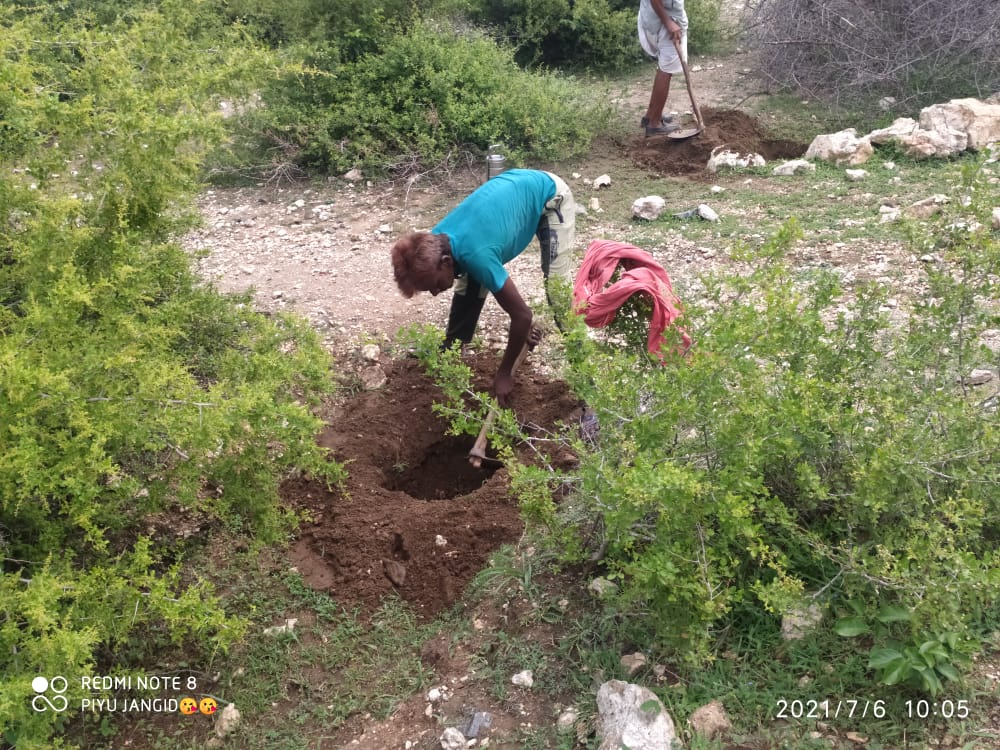


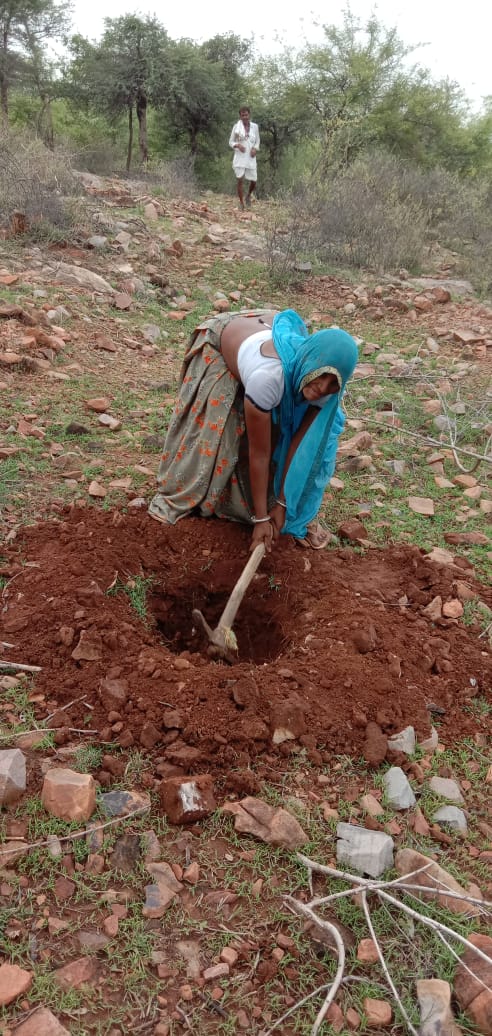
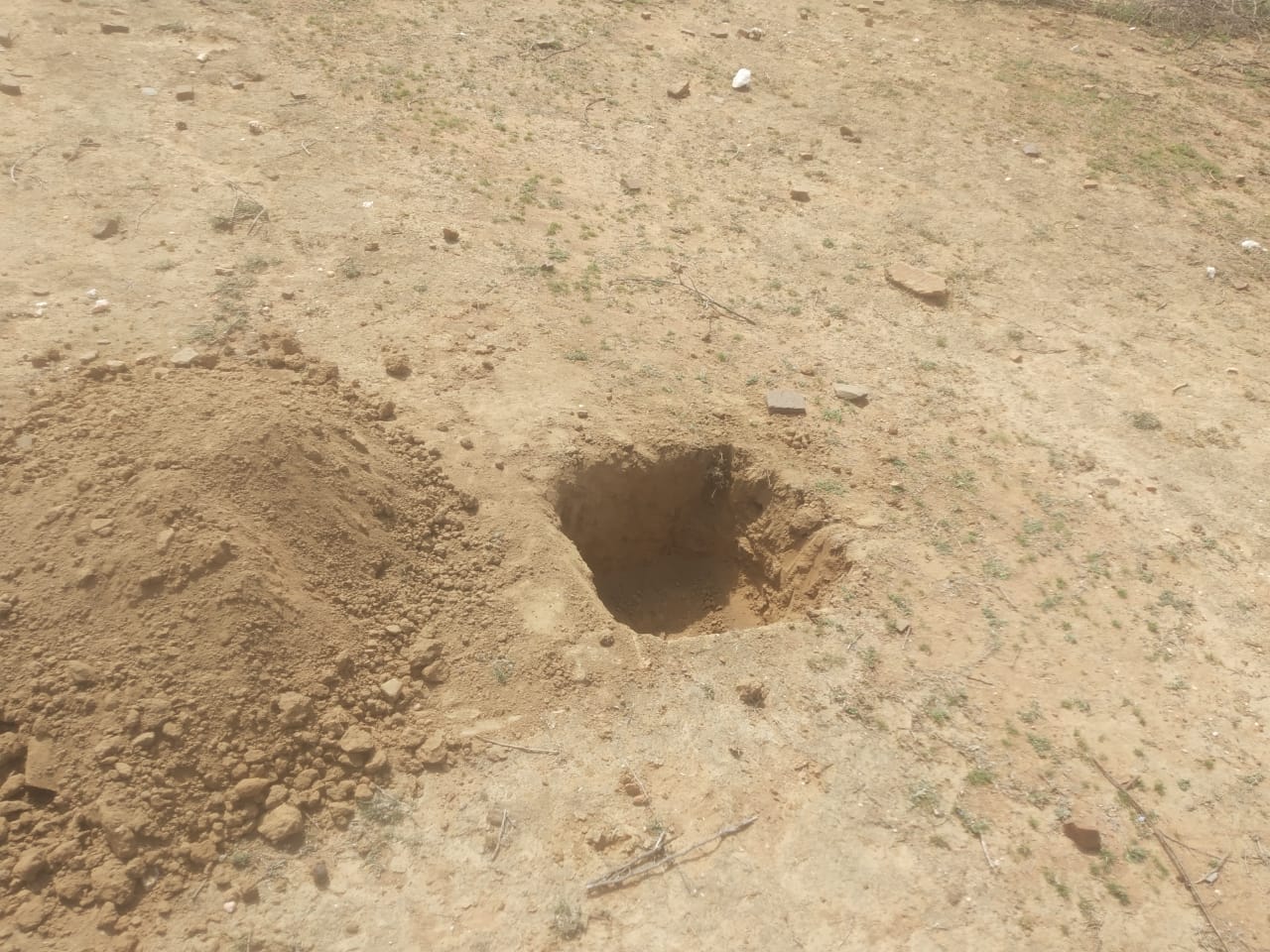
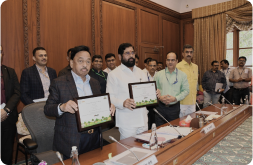
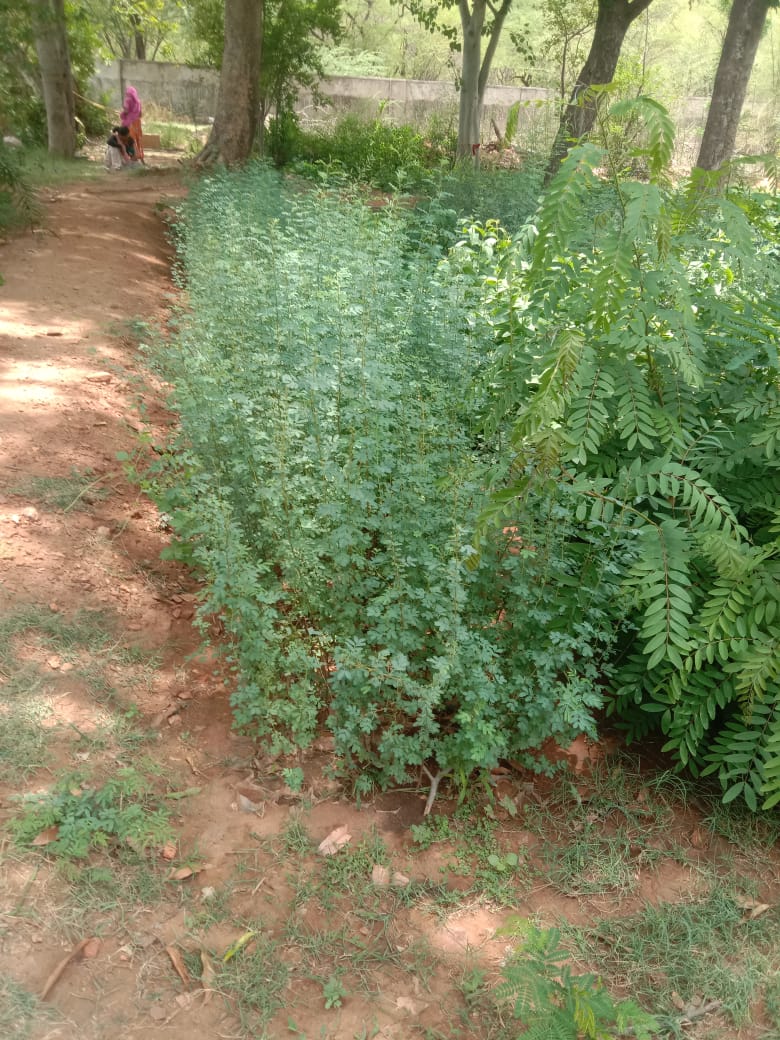

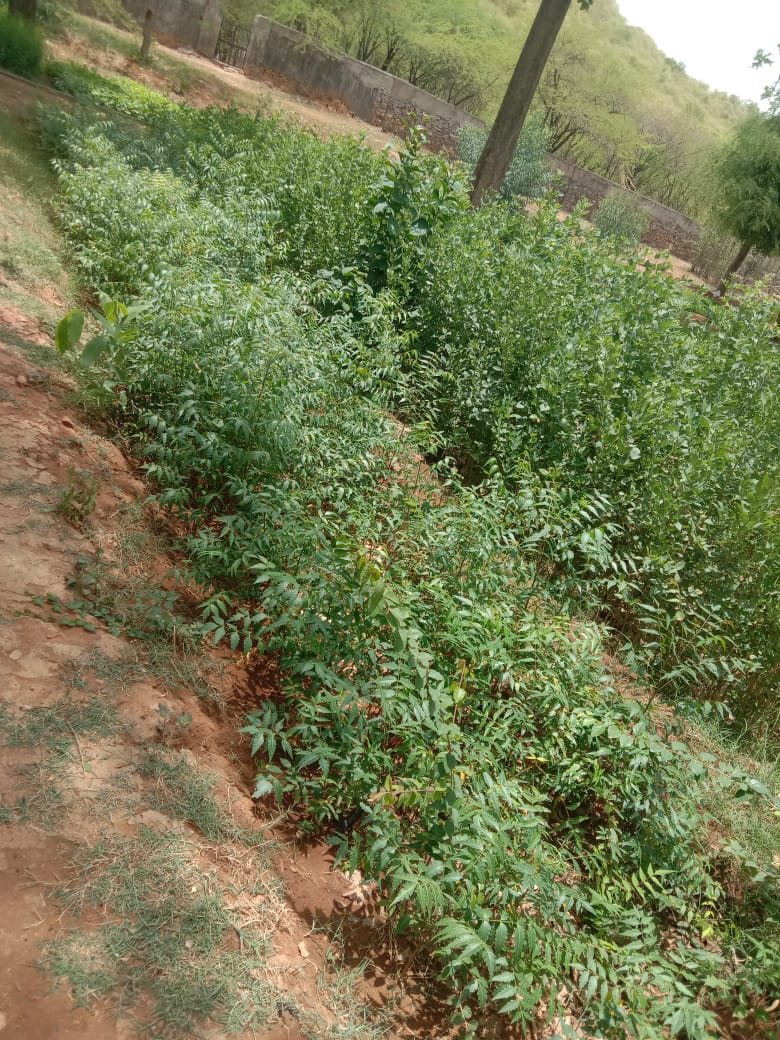
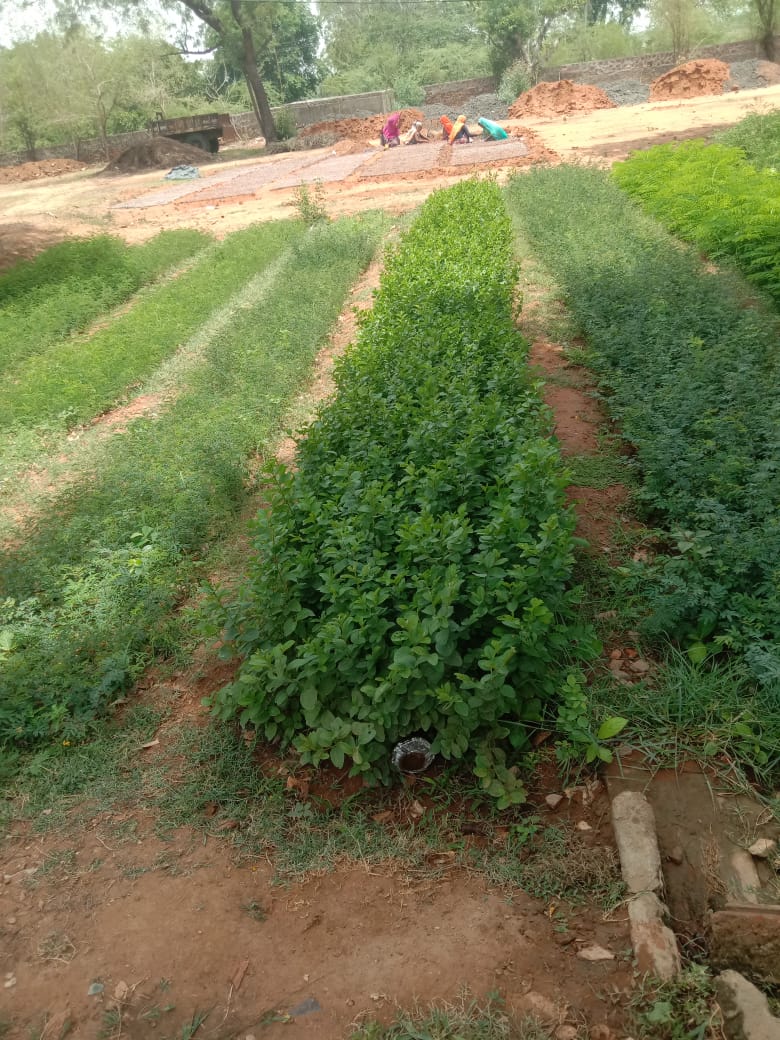
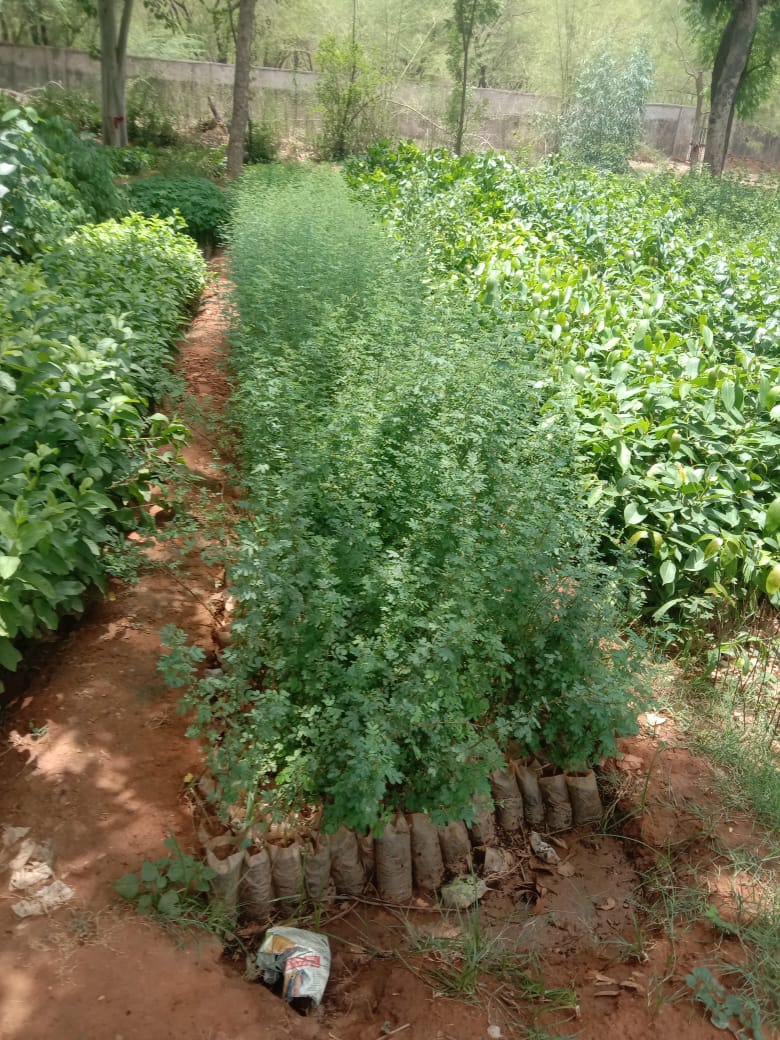
Project Target
0% Remaining
255,000
Trees Planted out of 255,000 Trees

Project Location:
The project involves plantation of trees on the community lands across 8 villages, namely, Nahargarh, Suras, Mehta Ji Ka Kheda, Chansen, Kathano ka Badiya, Kidmal, Kanti, Meno Ka Kheda, Biletha, Mediyan, Jhalra, Goga ka Khera, Itunda, Baroda, Pipliya, Ker ka Kheda, Neelwa, Gorana, Mataji ka Khera, Ragunathpura, Gopalpura, Khakhunda, Shyamgarh, Mala ka Khera, and Gulgav in Bhilwara, Rajasthan, India.
Project Aim
The villages chosen for plantation activity face extreme water scarcity. Scanty monsoon fills up to 0.61% of the dam's capacity. As a result, the city receives less than 260 lakh litres of water daily against the demand of 513 lakh litres of water. Officials of the public health engineering department supply water via train/ferry (up to 25 lakh litres of water). The plantation of trees in this drought-prone region is expected to improve the water table. The plantation of trees will hold the water with the help of its roots, preventing them both from percolating deep into the soil as well as getting evaporated, (Victoria State Government). Trees play an important role in the hydrological cycle of the forest ecosystems. Barbara J Bond et al., in her article, ‘How Trees Influence the Hydrological Cycle in Forest Ecosystems.’ Mentions the role of trees in the forest hydrological system.
Neem (Azadirachta indica), Shisham (Dalbergia sissoo), Babool (Acacia nilotica), Kumtha (Acacia senegal), Kher (Acacia catechu), Chural (Holoptelea integrifolia), Karanj (Pongamia pinnata), Jangle jalebi/Kekar (Pithecellobium dulce), Imli (Tamarindus indica), Ber (Ziziphus mauritiana), Ronj (Acacia lecophloea).
Trees planted will generate employment for rural communities. The drought-tolerant local species will provide measures to tackle the consequences of drought. The trees in the desert have deep taproots that utilize deep capillary water and through transpiration maintain the moisture of the atmosphere, which in turn induces rainfall. Tree covers prevent evaporation from rivers, reservoirs, and gravitational and capillary water, thus, maintaining the groundwater table and saving water for agricultural purposes. Planting local trees will help in the sustenance of long-term benefits in Bhilwara. Upon maturity, each tree can absorb approximately 20kg of CO2 per year which is considered globally as a conservative estimate for the sequestration potential of trees.
| Name of the Company | Number of Trees Adopted | Fiscal Year |
|---|---|---|
| Kirloskar Oil Engines Ltd. | 5,000 | 2021-22 |
| Trent Limited | 23,529 | 2020-21 |
| HDFC Bank | 50,000 | 2020-21 |
| HDB Financial Services | 25,000 | 2020-21 |
| Bajaj Finance Limited | 50,000 | 2019-20 |
| Dhanuka Agritech Limited | 20,000 | 2018-19 |
| Agrawalla Timbers | 25,000 | 2017-18 |
| Other Contributors (Individuals) | 23,000+ | NA |
Social Impact of Growing Trees
Community Engagement
Tree planting initiatives often involve local communities, which can lead to greater community cohesion.
Ecological Education
Provides opportunities for community members, especially children, about the importance of environmental sustainability.
Urban Beautification
Trees contribute to the aesthetic enhancement of urban areas, making cities more pleasant and liveable.
Climate Resilience
By improving green cover, tree planting helps make communities more resilient against climate impacts like heatwaves.
Employment Creation
Planting trees creates employment for local community members like planting and maintenance, administrative roles, and more long-term jobs in management.
Wildlife Habitat
Trees provide critical habitats for various species of wildlife. Enhancing tree cover helps preserve biodiversity, which can be an ecological boon for local communities
Copyrights @ 2025 All rights reserved by Pangea EcoNetAssets Pvt Ltd.